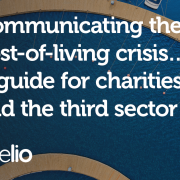Have a press-friendly chief exec to bolster your brand personality in the press? Telling the story of your business by aligning your company comms around members of your c-suite can be a smart strategy – but beware. Carefully constructed press releases form just part of the expanded conversation possible in today’s media landscape.
CEO-centred comms are a risky gambit in this era of call outs for bad behaviour, and criticism for connections with the wrong people or political factions.
Using data from Pulsar Trends and the ResponseSource Journalist Enquiry Service, we examine just how dangerous CEO controversies can be for comms teams tasked with protecting organisational reputation.
Trouble at the top means social media scrutiny
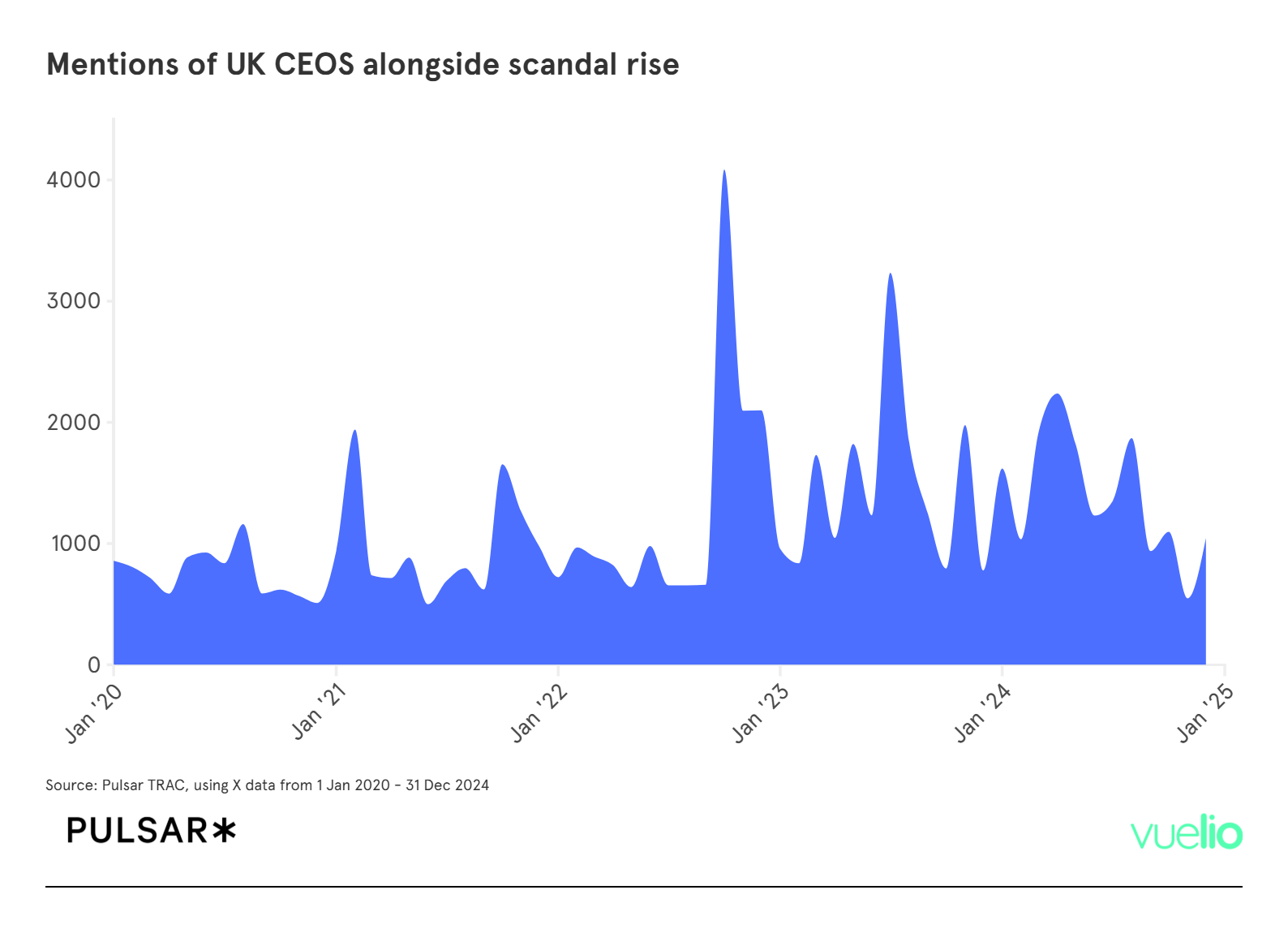
Tracking mentions of CEOs and chief executives with phrases including ‘controversy’, ‘disgraced’, and ‘cancelled’ shows a rise in conversation among the UK public on X since the start of 2020 – with spikes for specific stories of execs in trouble. Which stories got the most people talking and sharing?
US CEOs get the most attention from UK audiences
US-centred CEO stories gained the majority of interest from Britain-based users of X, with Musk’s take over of Twitter in October 2022 sparking the most social posting and sharing. Peaks also driven by news from overseas – OpenAI ousting CEO Sam Altman from his role (later rescinded) and the killing of UnitedHealthcare’s Brian Thompson. These stories eclipsed the large-scale UK-centred CEO scandals when it came to sharing on social media for Brits. So what did get their attention closer to home?
UK social sharing centred on stories that intersected with high-profile institutions and celebrity
Attention to UK-born stories went to the stepping down of NatWest CEO Alison Rose following a high-profile clash between the bank and Reform UK leader Nigel Farage, as well as the numerous controversies that fell into BBC CEO Tim Davie’s lap last year.

Harrod’s founder Mohammad Al-Fayed’s past impacted former exec Nigel Blow’s future, while events during Nick Read’s tenure at The Post Office continued to fuel furore on socials.
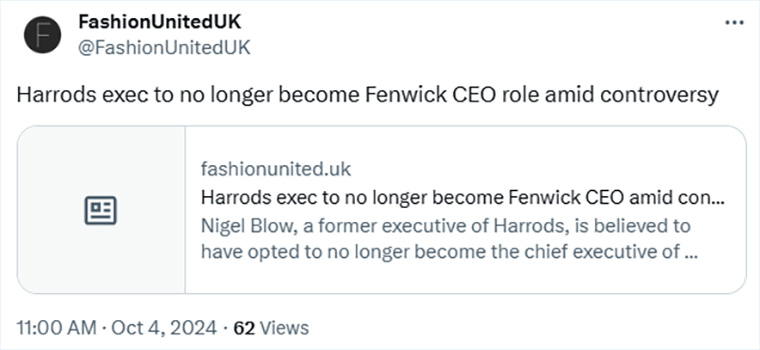
What they all have in common are connections to long-established institutions that come with prestige already attached – Coutts, Harrods, the Post Office, and the BBC.
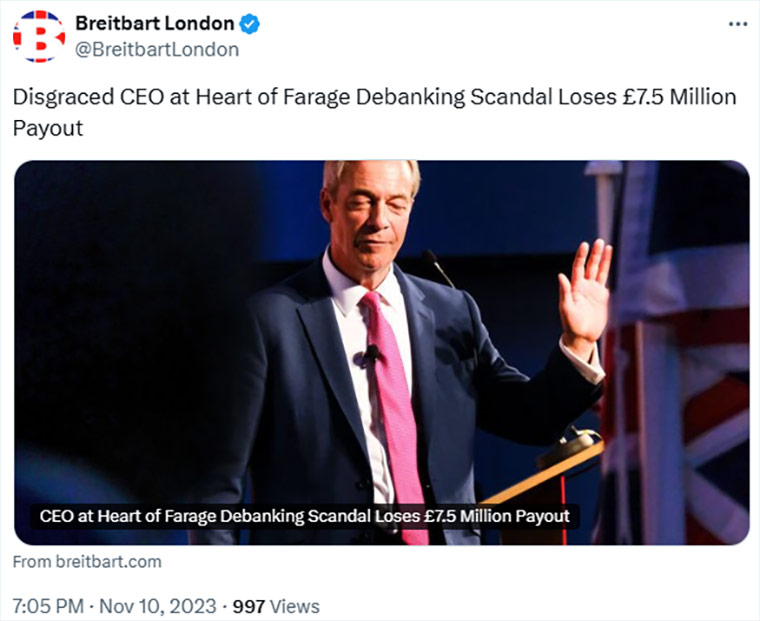
Could this be an element unique to the UK, with brands fully entrenched into our social fabric? The long history of these UK organisations come with unavoidable institutional weight – making any related human-wrought controversy yet more intriguing for the general public, ready to hold those in power to account.
It’s not just high-profile institutions that bring more attention on social media, however. Celebrity also helps. High-profile – and now also highly-controversial – author JK Rowling’s involvement in a CEO-related story heightened the spotlight on Rape Crisis Scotland CEO Sandy Brindley, who shared her experiences in a story for The Times in September 2024.
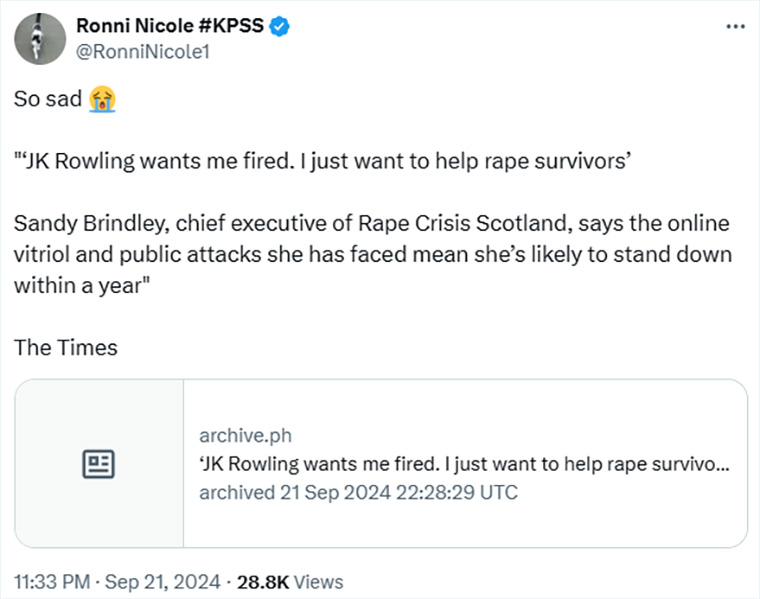
In comparison, the media spotlight on UK CEOs has dimmed – but why?
When examining coverage of UK ‘CEOs’ + ‘controversy’ in the media over the last few years, the data shows a decrease…

Is this cause for relief for comms teams stamping down CEO struggles behind the scenes? Don’t relax yet – business journalists and columnists have merely shifted their focus to include business-related political figures in the wake of the 2024 General Election. The Labour cabinet in particular has become prime fodder for right-leaning news outlets since its installation in July of 2024. Naturally, this has meant a slight downturn in UK CEOs being called out.
A catalyst for one peak in both news coverage and social conversation that featured a politician-CEO combination was former Secretary of State for Education Michelle Donelan’s clash with UK Research and Innovation chief exec Ottoline Leyser in October 2024:
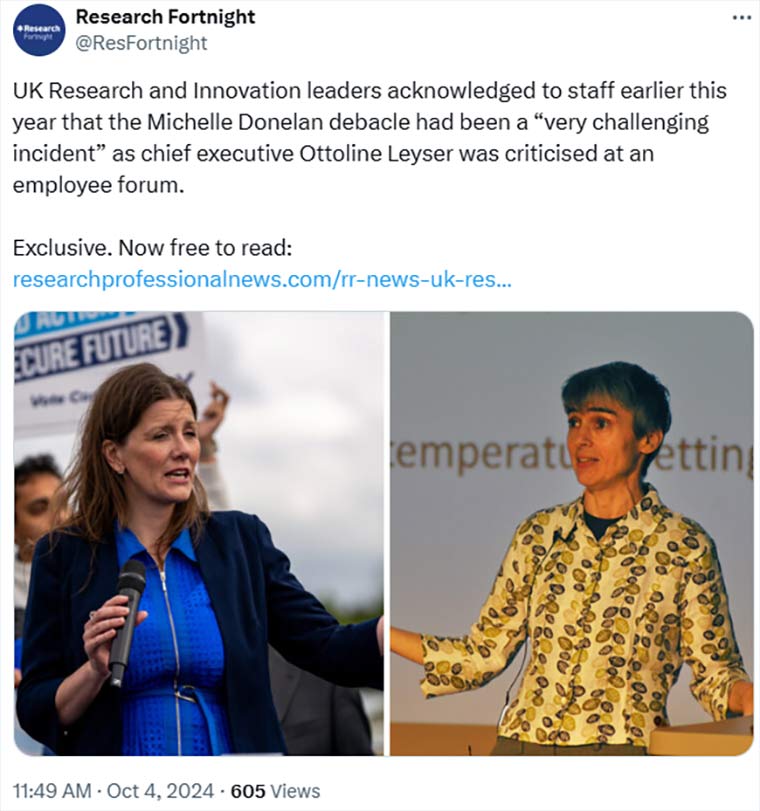
Does the Third Sector buck the trend?
The UK public aren’t only interested in commercial brand CEO scandals that intersect with the glitter of celebrity or politics. Beyond US-born controversy, one thing that consistently engages the UK public is scandal concerning the Third Sector.
Stories that got reporters writing – and social users sharing – was the announcement of Shelter’s ‘divisive’ CEO Polly Neate CBE’s plans to step down; the resignation of Children in Need chair Rosie Millard regarding objections to grants for LGBT Youth Scotland (LGBTYS); and the firing of Embrace Child Victims of Crime (CVOC) chief exec Anne Campbell.
CEOs don’t have to be guilty of bad behaviour themselves to be the subject of negative reporting or social media speculation. Not-for-profit comms teams must be prepared for a comms crisis related to their c-suite by monitoring the mood among the public, and the press.
CEOs as a source of expertise and controversy for UK journalists
Highlighting the continuing media interest in CEOs and the c-suite were the almost 400 related enquiries submitted by journalist, broadcast, and influencer users of the Journalist Enquiry Service last year.
Which sections of the media are hungry for CEO stories? The majority of requests came from business-focused trade titles including Management Today, Business Age, and Verdict, but also national press outlets with business beats including The Times and PA Media. Many of these requests sought comment from CEOs on the big stories of that week’s news cycle… but others wanted comment on the actions of CEOs themselves – including high-profile marketing expert, and controversy-courter, Steven Bartlett. One such journo request:
‘The online lifestyle, fashion, and beauty magazine SheerLuxe has come under scrutiny for ‘hiring’ their first AI (artificial intelligence) employee as Fashion Lifestyle Editor, Reem.
‘However, business mogul and host of the Diary of a CEO podcast, Steven Bartlett, scrutinised critics of the marketing stunt in a LinkedIn post […] Does Bartlett actually mean what he says? Or is he just trying to go against the grain of the common opinion?’
The opinion of business leaders is still of great use to journalists who require quick expertise to back-up their reporting (impressive job titles still confer respect) but, as is spotlighted by the data above, they aren’t granted unquestioned authority anymore, and their missteps can be quickly mined for content.
UK social media users are ready to pick apart CEO scandals and extend the life of these stories – especially when a controversy intersects with established and ‘respectable’ institutions or well-known figures. While the majority of the media has shifted focus to politicians, this doesn’t mean CEOs are in the clear.
Increased demand for ethical business choices from the public, and journalists reporting with their interests in mind, means CEOs are now just as easy to target for criticism as for their expertise. ‘Higher-profile’ increasingly means ‘higher-risk’, and understanding the nuances of the conversation will be a vital part of the PR toolkit this year.
Find out how to monitor your organisation’s reputation in the press and on social media with Vuelio’s monitoring solutions.











